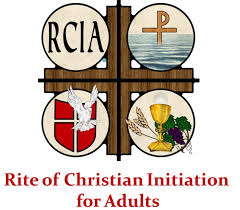Today is the second to the last Sunday of the Liturgical year. Next Sunday we will celebrate the Feast of Christ the King. So, as we come to the end of the liturgical year, the Church focuses our attention on the final days of the world, our own death and the Final Judgment. On this Sunday the Scripture Readings traditionally speak about “The Day of the Lord,” or the “Second Coming” of Jesus in glory as Judge at the end of the world.
In the First Reading of today, Prophet Malachi tells the Israelites about “The Day of the Lord.” He warns them telling them that the Future is known to God alone, and God will bring healing and reward for the just who forearm themselves with words and works like peace, justice, mercy and truth, and retribution for the proud and evildoers.
St. Paul encourages us not to be weary of doing good. He suggests that our best preparation for the future is to devote our attention to present duties, to maintain a holy and wholesome balance between prayer and service, work and play, and to develop enduring family ties and values. Today’s Gospel passage warns that the date of the end of the world is uncertain. Signs and portents will precede the end, and the faithful will be called upon to testify before kings and governors. The Good News, however, is that those who persevere in faithfulness to the Lord will save their souls and enter God’s eternal kingdom. The question of us on this 33rd Sunday is: Am I faithful to the Lord? Do I persevere in my faith?
Confirmation & Eucharist Enrollment – 2019-2020
This year our parish is blessed to have nineteen (School & Faith Formation) 8th graders who are going to receive the Sacrament of Confirmation. They are going to receive the gifts of the Holy Spirit. This Sunday Sacramental Enrollment is going to take place at the Noon Mass. I would like to request all of you to pray for our nineteen 8th graders, parents and sponsors. We are also blessed with eighteen (School & Faith Formation) children who are going to receive the Sacrament of the Holy Eucharist (The Body and Blood of Christ). Let us pray that through their preparation they may understand well about the Sacrament of Holy Eucharist and grow in devotion to this everlasting food.
God bless you! Have a great week.
Fr. Kishore Babu Battu SAC


 Q. How should I dress for Mass?
Q. How should I dress for Mass? RCIA “Right of Christian Initiation of Adults”
RCIA “Right of Christian Initiation of Adults”